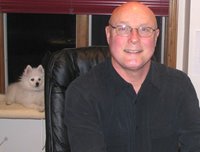WE LEARN FROM THE DIFFERENCES OF OTHERS
WE LEARN FROM THE DIFFERENCES OF OTHERS
An editorial in the March 30, 2008 Fargo Forum properly castigated students at the University of North Dakota and North Dakota State University for offensive behavior towards Native Americans and African Americans. The same day, E. Allan Branstiter wrote a thoughtful commentary about the hate and bigotry common in our fragmented society. In a year when the first woman, African American, or man over the age of 70 will be our next president, it is appropriate to reflect upon the value of diversity in our lives.
I grew up as a man in white America. I had an unconscious assumption that everyone experienced life and saw the world as I did. I learned that we often demonize and dehumanize people different from us, because it is easier to mistreat those we fear if we first see them as objects.
Bettye Granger taught me that there are many worlds—not just mine—and all are worthy of respect. She led me to reflect on my childhood assumptions about others through adult eyes. I realized that each of us has a unique history, experience life in a singular way, and can learn important lessons from those different from us.
I met Bettye when I became the manager of the department she worked in. I held meetings with employees and got to know her. Bettye was a stately black woman with a loud voice and a great sense of humor. She was down to earth and asked tough questions. She was not intimidated by me. I liked her.
One day I invited Bettye to lunch. I told her about a problem I had with plans for a vacation. She listened thoughtfully and then told me how she raised four children without a father. She described how she tried to protect her children from gang influence and how she raised them to value work, education, and concern for others.
I felt about two inches tall as I listened. How could I work so close to someone and have no idea what her life was like? How could I assume that she experienced life like I did? How could I be so oblivious to the challenges my coworkers faced?
Months later, at Christmas, Bettye and I shared lunch again. She told me that she and her children had a monthly roundtable where they discussed issues and made decisions. The discussion that month had been whether to use their available money to either get their car fixed or to buy Christmas presents. The younger kids wanted gifts. The older kids realized the importance of a car in the wintertime and reminded the younger ones of the difficulties of riding the bus in cold weather. The consensus was to get the car fixed. I felt humbled by the dignity of her life.
Bettye taught me that the barriers of age, race, rank, gender, politics, and religion can be overcome, and we can experience the humanity of others if we are willing to listen, understand, and learn from one another.
I sat about one hundred and fifty feet from Bettye. The CEO of our company sat about one hundred and fifty feet above me. I wondered if his world was as far away from mine as mine was from Bettye’s. I wondered if he was as unaware of the differences between his life and mine as I was of Bettye’s and mine.
Bettye taught me that the antidote to seeing others as objects is to spend time getting to know them as people. It is difficult to be insensitive and hateful towards those we know as fellow human beings.
Tom Heuerman, Ph.D. is an organizational consultant, former Secret Service agent, and newspaper executive. He lives in Moorhead, MN


0 Comments:
Post a Comment
<< Home